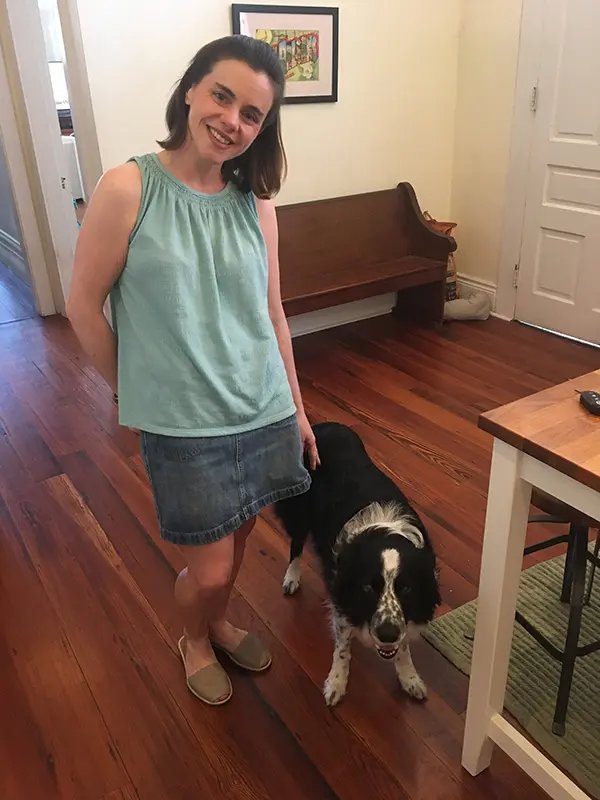
Having grown up in a French-speaking household and becoming a Spanish professor years later, my world has always existed in more than one language. I’ve also always known that while language learning seems like a science of conjugating verbs, it is actually a very personal endeavor. Shifting my Spanish classes online while homeschooling my 7 year-old-son, who is enrolled in a French immersion school, has driven that point home in spades.
For both my son and my students, my challenge has been to give them the opportunity to have that personal relationship with the language, giving them the flexibility that synchronous instruction was not going to provide. While we Zoom in small groups like we did in class, I’ve replaced class instruction with YouTube videos (made with iMovie so I could put slides in) and their conversations happen via the Discussion Boards in Canvas.
There have been challenges and surprises. Technology is not infallible, especially when so many people--including my husband who is a professor at another local university--are using Internet bandwidth. When I am filming a lesson, the mailman will inevitably arrive and cause my dog (or my “teaching assistant” if you’ve seen my videos) to bark hysterically. I’ve had to examine my goals for the classes I’m teaching and decide what’s important and cut what is not. That said, asking these questions has been productive, and my students have responded with wonderful ideas, feedback and, most of all, incredible patience.
At some point, we will reflect on what we’ve lost out of this experience as teachers and students. There is no replacing what happens in the classroom, but with my students and my son, I’ve found flexibility is key. We all need time and patience to approach this shift as best we can. My house has always been a model for the global classroom, and it still is. It’s just now a much more chaotic version of that than I could have imagined.
A native New Orleanian, Brittany Kennedy came to Tulane in 2007 and was named Senior Professor of Practice in 2016. She holds a Ph.D. in Comparative Literature from the University of South Carolina, and her research in Modernist Spanish and European culture focuses most specifically on fascism, particularly in a transatlantic context. Her book, Between Distant Modernities: Performing Exceptionality in Francoist Spain and the Jim Crow South, was published by the University Press of Mississippi in 2015. Meanwhile, her most recent research focuses on Basque culture and nationalism as an expression of modernism. She teaches a wide variety of courses in the department, including language, Introduction to Spanish culture, as well as courses on Hispanic literature and film. She is also a Residential Faculty Mentor on campus and a member of the TIDES 2020 faculty.

